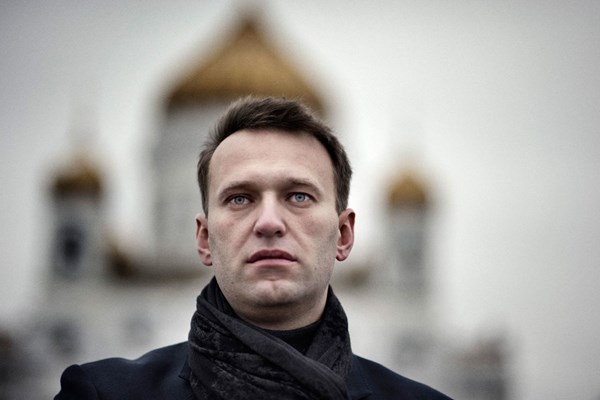Navalny says Putin is behind his poisoning
Prominent Russian opposition politician Alexei Navalny blamed Russian President Vladimir Putin for his poisoning with the nerve agent Novichok. "I state that Putin is behind this crime, and I have no other version of what happened," he said in an interview with Der Spiegel magazine.
Navalny stressed that he has no fear and intends to return to Russia. "My task now is to remain fearless. And I have no fear!" he said. Recalling the moment of poisoning, Navalny said, "You don't feel any pain, but you know you're dying."
The head of the Cinema for Peace Foundation, Jaka Bizilj, who organized the transportation of Navalny for treatment in Germany, expressed the opinion that the oppositionist will need at least one more month to recover from poisoning. According to Bizilj, it is absolutely clear that Navalny intends to return to Russia and resume political activity.
Meanwhile, the chairman of the Russian State Duma Vyacheslav Volodin, commenting on the interview of Alexei Navalny, called the oppositionist "shameless and scoundrel" who "absolutely obviously... works with the special services and authorities of Western countries... it's in their best interest." "Putin saved his life," Volodin said.
The attempt on the life of Alexei Navalny will be one of the topics of the EU summit opening in Brussels on October 1. It is expected that the participants of this summit will adopt a special statement condemning the poisoning of Navalny using a chemical weapon and will demand that the Russian authorities thoroughly investigate this crime.
Earlier, German Chancellor Angela Merkel demanded that Moscow "transparently and fully" investigate the poisoning of the oppositionist. "This is not a bilateral case," Merkel said. "This crime, which was committed in Russia, is a violation of the convention on the prohibition of chemical weapons, and therefore is an international issue."
Alexey Navalny became ill on August 20 aboard a plane flying from Tomsk to Moscow. After an emergency landing in Omsk, the oppositionist was hospitalized. On August 22, Navalny was taken to Berlin for treatment. The politician was in an induced coma for 19 days.
Experts from the German Armed Forces Special Laboratory at the request of the Charite Clinic in Berlin conducted a toxicological analysis of samples taken from Navalny and found traces of the neuro-paralytic substance of the Novichok" group. Laboratories in Sweden and France later came to similar conclusions independently. Moscow denies all accusations of involvement in the assassination attempt on the oppositionist.
